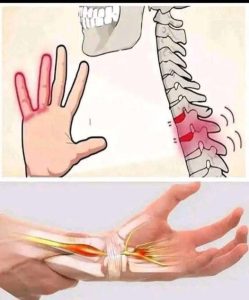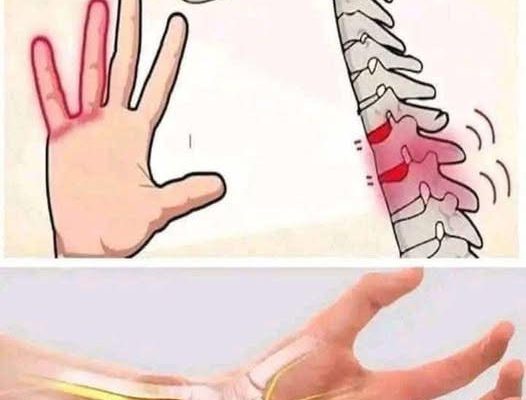Waking Up With Numb or Tingling Hands? Here’s What It Might Mean

Have you ever woken up to find your hands feeling numb or tingling, as though they’ve fallen asleep? If so, you’re not alone—and in many cases, it’s nothing to worry about.
The sensation, often described as “pins and needles,” is typically harmless on its own. According to the Mayo Clinic, “Numbness alone isn’t usually associated with potentially dangerous disorders, such as strokes or tumors.”

Common Causes of Hand Numbness and Tingling
One of the most common and benign causes is your sleeping position. If you sleep with your hands tucked underneath your body or in a position that restricts blood flow or compresses nerves, you may wake up with numbness. In most cases, normal sensation returns shortly after you move.
Repetitive hand and finger movements—like typing, writing, or using tools—can also contribute to numbness over time. This may lead to nerve compression conditions such as carpal tunnel syndrome, where pressure on the median nerve in the wrist causes tingling, numbness, or weakness. If left untreated, it can cause permanent nerve damage and may even require surgery, according to Healthline.

Nutritional Deficiencies and Imbalances
A deficiency in vitamin B12 is another potential cause, particularly for vegetarians and vegans, as the vitamin is primarily found in animal products like meat, eggs, and dairy. B12 is also available in supplement form and through fortified foods.
Low levels of calcium, potassium, or sodium can disrupt nerve function and cause tingling sensations. These imbalances are often linked to dehydration, certain medications, or underlying health conditions. Staying hydrated and maintaining a balanced diet can help prevent these issues.
Underlying Medical Conditions
Persistent numbness or tingling in the hands and feet may also signal more serious conditions such as:
- Diabetic neuropathy: Long-term high blood sugar can damage peripheral nerves, leading to numbness, tingling, or burning sensations.
- Nerve compression: Issues like a herniated disc or cervical spondylosis can compress nerves in the spine, radiating symptoms into the arms and hands.
- Autoimmune diseases: Conditions like rheumatoid arthritis can inflame joints and nerves, contributing to numbness.
- Poor circulation or non-cancerous growths like ganglion cysts may also interfere with nerve signals.
- Certain infections can impact nerve health and produce similar sensations.
When to Seek Medical Advice

Occasional tingling or numbness is usually harmless, especially if it resolves quickly. However, if these sensations persist, worsen, or are accompanied by other symptoms, it’s important to consult a healthcare professional. Persistent numbness could indicate an underlying condition that requires diagnosis and treatment.


